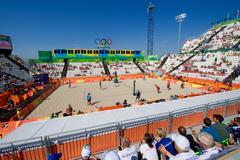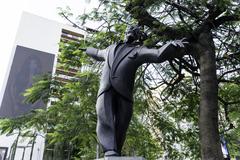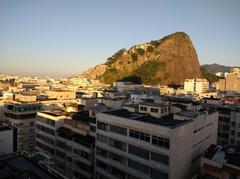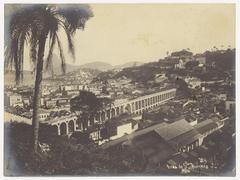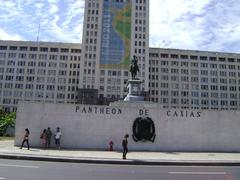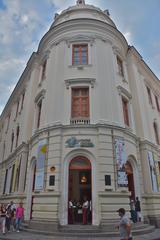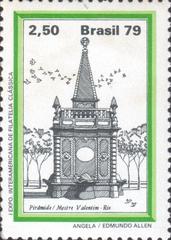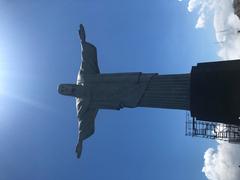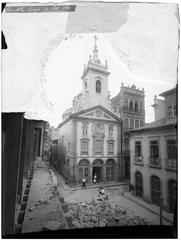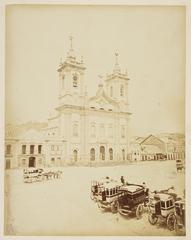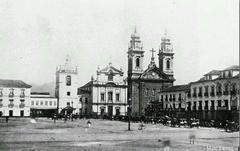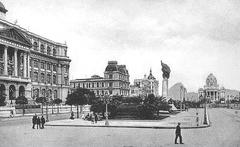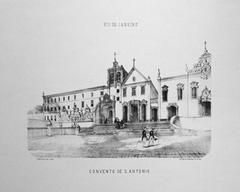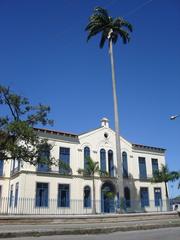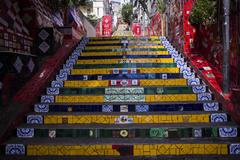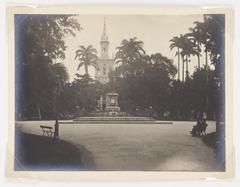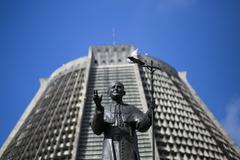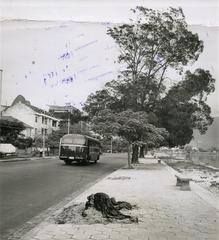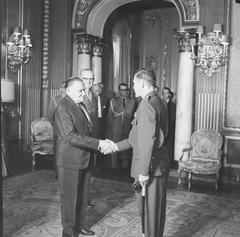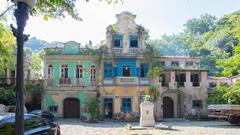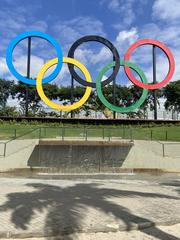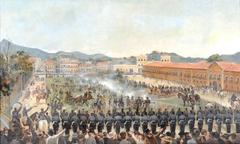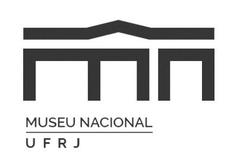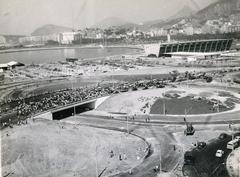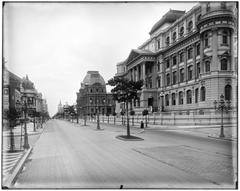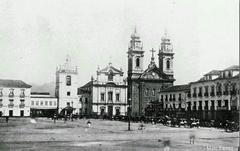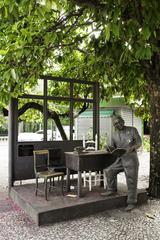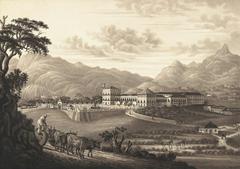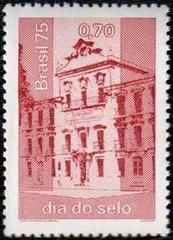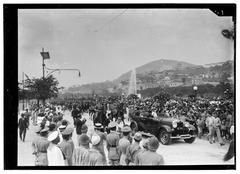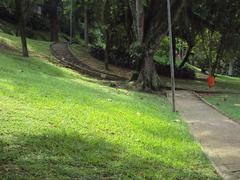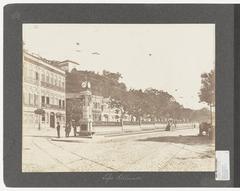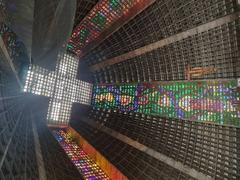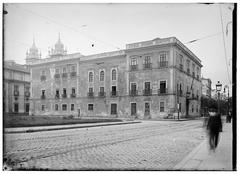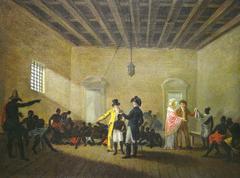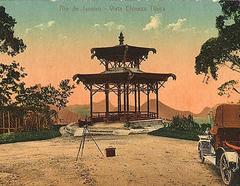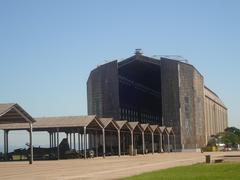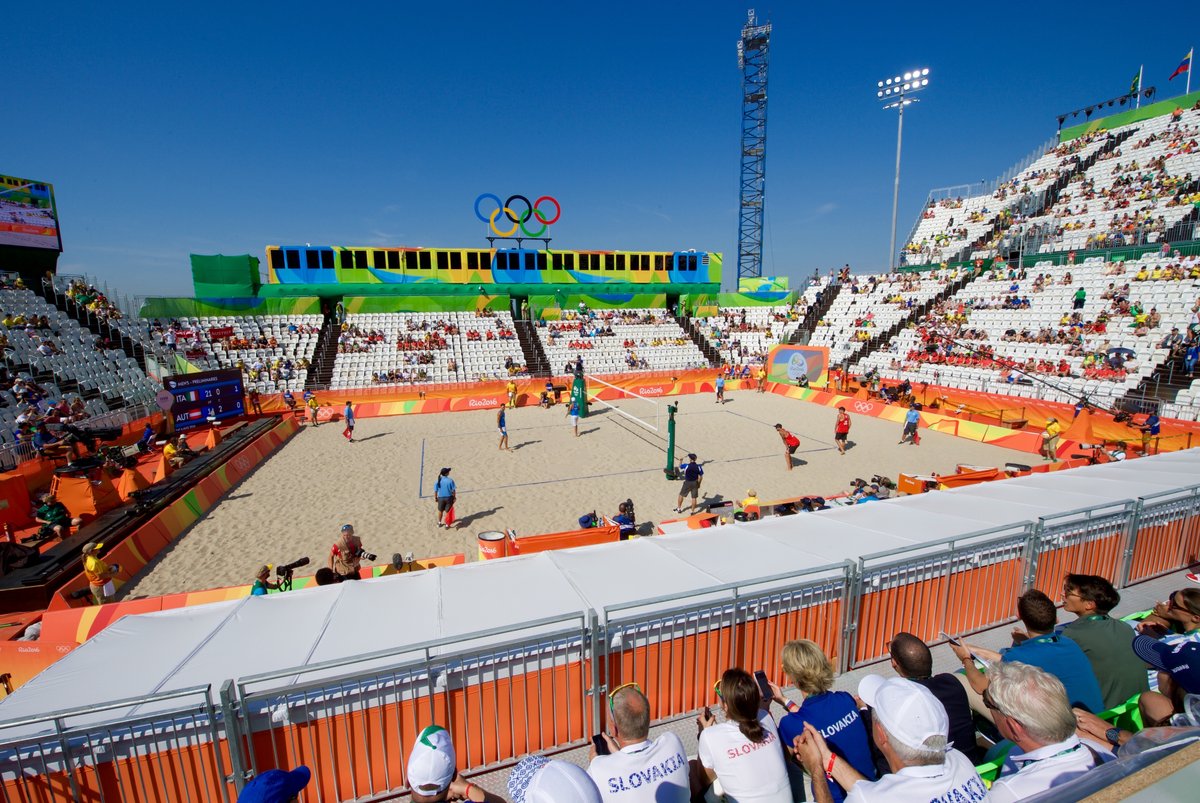
Copacabana Stadium Visiting Hours, Tickets, and Tourist Guide: Rio de Janeiro Historical Sites
Date: 15/06/2025
Introduction
Nestled along the iconic Copacabana Beach in Rio de Janeiro, Copacabana Stadium was a groundbreaking temporary venue created for the 2016 Summer Olympics and Paralympics. Although it no longer stands, its influence lives on through the legacy of sustainable architecture, vibrant sporting culture, and community spirit that continues to define Copacabana Beach. This updated guide explores the stadium’s history, visiting information, cultural significance, and practical travel tips to help you make the most of your Rio de Janeiro experience (TravelPander; e-architect).
Table of Contents
- Historical Context of Copacabana Stadium
- Olympic Legacy
- Visitor Information
- Experiences and Activities
- Frequently Asked Questions (FAQ)
- Visuals and Media
- Useful Links
- Conclusion and Call to Action
Historical Context of Copacabana Stadium
Origins and Temporary Nature
Copacabana Stadium was conceived as a temporary, modular venue to host beach volleyball and Paralympic events during the 2016 Summer Olympics. Unlike Rio’s permanent sporting venues, the stadium was built directly on Copacabana’s sands, symbolizing Brazil’s deep connection to beach culture and the global popularity of the location (TravelPander).
The modular design, accommodating up to 12,000 spectators, was engineered for swift assembly and dismantling. This approach set a new standard for environmentally conscious Olympic infrastructure, with components repurposed after the Games (Wikipedia; e-architect).
Copacabana Beach’s Cultural Importance
Copacabana Beach has long been central to Rio’s urban identity. Its famous black-and-white wave-patterned promenade, created in the 1970s, is a hallmark of the city’s architectural heritage and a gathering place for locals and visitors. Over the years, Copacabana has hosted everything from New Year’s Eve celebrations to music festivals and international sporting competitions (TravelPander).
The selection of Copacabana for the Olympic stadium location was both a celebration of this legacy and a statement of Brazil’s sporting culture.
Olympic Planning and Construction
The stadium’s design by BCMF Arquitetos emphasized minimal environmental impact. Its lightweight, prefabricated materials enabled the structure to be anchored safely in sand and withstand the beach’s coastal environment. After the Games, the stadium was dismantled and its materials reused at other sporting facilities, showcasing a model for sustainable event architecture (e-architect).
Olympic Legacy
Beach Volleyball at Rio 2016
Copacabana Stadium became the focal point for Olympic beach volleyball, with matches taking place against a stunning backdrop of the Atlantic Ocean and Sugarloaf Mountain. Brazil’s women’s team claimed gold, igniting national celebrations and establishing Copacabana as the spiritual home of beach volleyball (TravelPander).
Paralympic and Community Events
The stadium’s use extended into the Paralympics, hosting sitting volleyball and other adaptive sports. Accessibility features and a welcoming atmosphere made it a beacon of inclusivity. The venue also hosted concerts, exhibitions, and cultural activities, inviting the public to participate in the Olympic spirit.
Lasting Impact on Rio
Although temporary, the stadium’s influence persists. The successful integration of a major sports venue into a public beach setting encouraged Rio to pursue creative uses of urban public spaces for future events. The Olympics brought a surge of visitors and global media attention, boosting hospitality and tourism in the Copacabana area (TravelPander).
Sustainability and Social Integration
The stadium’s design responded to concerns about Olympic infrastructure’s environmental costs. Its temporary nature minimized long-term impact, while its open design fostered community engagement, making the Olympic experience accessible to all.
Ongoing Influence
Post-Olympics, Copacabana Beach continues to host major sporting and cultural events, including FIVB World Tour beach volleyball, international concerts, and festivals. The legacy of sustainable, community-oriented event planning continues to inform how Rio uses its public spaces (Where Is The Buzz; ArchDaily).
Visitor Information
Visiting Hours and Tickets
- Beach Access: Copacabana Beach is open 24/7, year-round, with free public access. There is no entry fee to the beach or former stadium site.
- Event Tickets: For current events and beach volleyball tournaments, tickets (if required) can be purchased online through official event websites or authorized sellers.
- Copacabana Fort: Open daily from 10:00 AM to 5:00 PM, with a small entrance fee (around R$20 for adults; discounts for students and seniors) (Rio.com).
Accessibility and Transportation
- Accessibility: Copacabana Beach and surrounding attractions offer ramps and adapted facilities for visitors with disabilities.
- Getting There: The beach is easily reached via the Rio metro (Cardeal Arcoverde or Copacabana stations), bus routes, taxis, and ride-sharing. Walking and cycling along the promenade are also popular (Rio.com).
Travel Tips
- Bring sun protection, stay hydrated, and secure personal belongings.
- Use official transport and avoid valuables in crowded areas.
- Arrive early for major events due to large crowds and security checks.
Experiences and Activities
- Beach Volleyball: Public courts invite visitors to play or watch matches, continuing the Olympic tradition.
- Guided Tours: Explore Copacabana’s Olympic history and cultural landmarks with walking tours from local operators (TravelPander).
- Photography: The beach offers exceptional sunrise and sunset photo opportunities, especially near the former stadium site.
- Nearby Attractions: Visit Copacabana Fort, the wave-patterned promenade, Maracanã Stadium, and Sugarloaf Mountain (Maracanã Stadium).
Frequently Asked Questions (FAQ)
Is Copacabana Stadium open to visitors today?
No, the stadium was dismantled after the 2016 Olympics. However, the beach and its vibrant atmosphere remain open to all.
Can I watch beach volleyball at Copacabana Beach?
Yes, the beach regularly hosts tournaments with temporary courts. Check local listings for schedules and ticket details.
How do I get to Copacabana Beach?
Take the metro (Cardeal Arcoverde or Copacabana stations), city buses, taxis, or ride-sharing services.
Are there guided tours about the Olympic legacy?
Yes, several operators offer Olympic-themed tours, including historical highlights and key locations.
Is Copacabana Beach accessible for people with disabilities?
Yes, the beach and nearby facilities provide ramps and adapted amenities.
Visuals and Media
- Panoramic images of Copacabana Beach and Sugarloaf Mountain, highlighting the former stadium site.
- Interactive map with key landmarks and transit stations.
Useful Links
- Maracanã Stadium
- Visit Rio
- Olympics.com Rio 2016
- TravelPander - Copacabana Beach
- e-architect - Rio 2016 Buildings
- Rio.com - Practical Rio
- Goitaca Stay - Rio’s Cultural Agenda for 2025
- ArchDaily - Spaces of Resilience
- Where Is The Buzz - Beyoncé Copacabana Concert
Conclusion and Call to Action
Although Copacabana Stadium’s physical presence was temporary, its legacy shaped Rio’s approach to sustainable, community-driven event spaces. Today, Copacabana Beach continues to thrive as a global symbol of sport, celebration, and natural beauty. Visitors can enjoy world-class events, historic landmarks, and authentic local culture along its iconic shores.
For the latest travel tips, event schedules, and more on Rio’s attractions, download the Audiala app and follow us on social media. Immerse yourself in Rio’s vibrant spirit and make the most of your visit to Copacabana Beach!
Sources
- TravelPander - Where is Copacabana Beach in South America?
- e-architect - Rio 2016 Buildings
- Wikipedia - Copacabana Stadium
- TravelPander - What is the famous beach in Rio de Janeiro?
- Rio.com - Practical Rio
- Goitaca Stay - Rio’s Cultural Agenda for 2025
- Visit Rio
- Olympics.com - Rio 2016
- Maracanã Stadium
- ArchDaily - Spaces of Resilience and Culture of Celebration in Rio de Janeiro
- Where Is The Buzz - Beyoncé in Talks for Historic 2026 Copacabana Concert
- Goitaca Stay
- Copacabana.com - Eventos
- The Art of Gallivanting - Culture in Rio
- All Events In - Copacabana
- Beach on Map - Copacabana
- Paula Pins The Planet - Rio de Janeiro Facts
